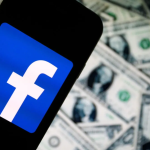
In a world grappling with economic uncertainties and rising inflation, one generation stands out for its seemingly fearless spending habits: Generation Z, often referred to as Gen Z. Born between the mid-1990s and the early 2010s, Gen Z has grown up in a digital age of social media, instant gratification, and ever-present FOMO (Fear of Missing Out). In this article, we will explore how Gen Z’s FOMO fuels their significant spending, even in the face of inflation, and what this means for their financial future.
Understanding Gen Z’s FOMO
FOMO, the fear of missing out, is a powerful psychological force that drives people to make impulsive decisions, particularly in the age of social media. Gen Z, the first generation to come of age with smartphones and social platforms at their fingertips, has become intimately familiar with FOMO. They see their peers’ curated online lives, from travel adventures to trendy purchases, and feel the pressure to keep up.
The Link Between FOMO and Spending
The connection between FOMO and spending is straightforward. Gen Z, like many others, often find themselves making purchases driven by a desire to experience what they perceive as exciting, desirable, or essential. The fear of missing out on social experiences, fashion trends, or the latest gadgets compels them to part with their money more readily.
Impulse Buying
Social media platforms like Instagram, TikTok, and Snapchat are filled with influencers and peers showcasing their latest acquisitions. These visually appealing posts can trigger impulsive buying, as Gen Z seeks to replicate the experiences and products they see. One-click shopping and instant delivery services only make it easier to act on their impulses.
The Impact of Inflation
Despite the recent surge in inflation, with rising prices on everything from groceries to gas, Gen Z continues to open their wallets. This resilience in spending may be attributed to several factors:
Financial Support: Some Gen Z individuals receive financial support from parents or guardians, which can provide a safety net and the freedom to spend without immediate consequences.
Delayed Financial Realities: Many Gen Z members are still in the early stages of their financial journeys. They may not yet have faced the full weight of responsibilities like rent, mortgages, or student loans, allowing them to allocate more of their income to discretionary spending.
Digital Payment Methods: The widespread adoption of digital wallets, apps, and contactless payment methods has made spending seamless and almost effortless. Gen Z can easily make purchases without the physical exchange of cash.
Low Interest Rates: Historically low interest rates may have reduced the perceived opportunity cost of spending, as the returns on savings accounts and investments are relatively modest.
Peer Pressure: The social aspect of FOMO is still prevalent among Gen Z. The desire to fit in and be part of the group, even when the group’s activities or purchases come with a price tag, remains a driving force.
Looking to the Future
Gen Z’s spending habits are influenced by their unique generational characteristics and the digital age they’ve grown up in. While their resilience in the face of inflation may seem unwise to some, it’s essential to recognize that generational traits and circumstances change over time.
Financial Education: As Gen Z matures, many will acquire a better understanding of financial management, economic forces, and the importance of saving. These lessons often come through lived experiences and exposure to financial education.
Economic Shifts: Economic conditions are not static. As Gen Z enters the workforce and takes on greater financial responsibilities, their spending habits may naturally evolve. The realities of inflation and the need to budget may lead to more prudent financial choices.
Digital Savviness: Gen Z’s comfort with digital tools and platforms could also serve them well in the future, as they harness technology to make informed financial decisions and investments.
Savings and Investment Culture: Gen Z has shown an interest in ethical and sustainable investing, which may translate into a broader culture of financial responsibility and long-term planning.
Gen Z’s FOMO-driven spending habits in the face of inflation may raise concerns about their financial well-being. However, it’s crucial to remember that generational spending patterns evolve as individuals grow and adapt to new circumstances. The convergence of financial education, economic realities, and digital savviness could lead Gen Z to become a generation that balances the pursuit of experiences and instant gratification with sound financial planning for the future.













